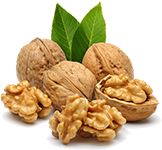
- Famous Brand Promotion:
 010-63457516
010-63457516 -

 Favorites
Favorites

 010-63457516
010-63457516
 Favorites
Favorites
What
are differences of black sesame, white sesame, sesame paste and sesame oil in
nutrition?
The nutritious value of black
sesame is slightly higher than that of white sesame. Main nutrient contents
such as protein, fat, VE, Ca, and Fe in black sesame are all higher than that
in white sesame; but the varieties and quantity of fatty acid and amino acid
are nearly the same. In terms of taste, white sesame is better; while in terms
of benefits in medical effect, black sesame is optimal. The fried sesame can be
used in cold dish and raw sesame can be used when making soybean milk. The
shell of sesame is broken by physical interaction to improve absorption rate.
Sesame oil is of great
oxidative stability. Although the fat content of sesame oil is high, most are unsaturated
fatty acids, in which monounsaturated fatty acid is accounting for 37.6%, and polyunsaturated
fatty acids accounting for 44.2%. Content of VE in sesame oil is higher than
most of other edible oil. Appropriately taking is benefit for physical health. Sesame
oil is unsuitable for cooking under high temperature. Otherwise, it is easy to
loss flavor, and can be used in cold dish, soup or noodle.
Fe
content of sesame paste is more. Sesame paste is grinded from fried sesames. Mineral
substances such as Ca and Fe are richer. It can be used as source of Ca, but
content of fat, energy, salt (often with soybean sauce when seasoning) is high.
Sesame paste can be used together with vegetables. Moreover, it can reduce
taking of other oily foods and salt.